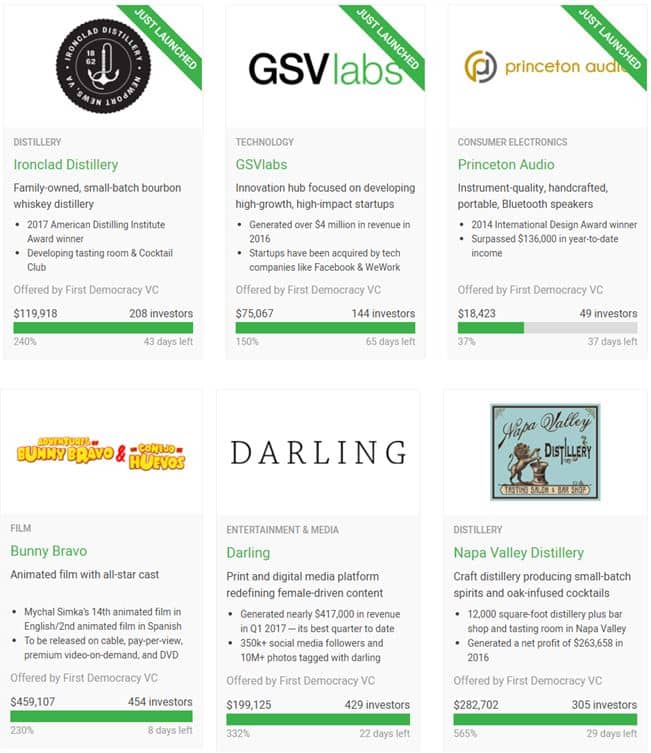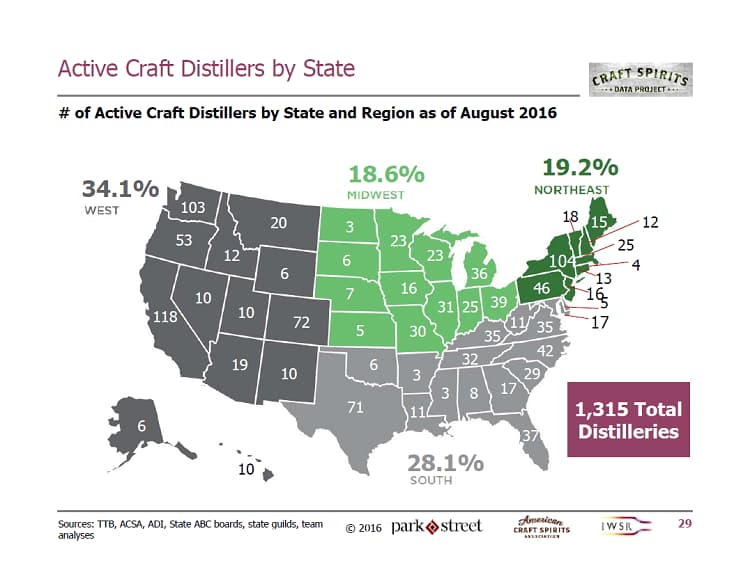MicroVentures – Is Equity Crowdfunding Worth A Look?
Table of contents

If you need to stay on top of everything tech like we try to do around here, you need to get right in front of what’s happening. One way to do that is to subscribe to Strictly VC which is this great daily newsletter that gives you a rundown of what meaningful funding rounds have taken place, some of the IPOs on offer, meaningful acquisitions, etc. It’s nowhere near as entertaining as Anand’s banter, and it still can’t help but take political jabs (though not nearly as bad as political commentary sites like Wired), but it’s part of our required reading to stay in tune with what’s going on tech. In a recent edition we came across the following blurb:
Now that sounds lovely, doesn’t it? Startups raise money from their communities and anyone, yes anyone, can invest in startups now with as little as $100. This is something called “equity crowdfunding”, a topic we have not been overly enthusiastic about, mainly because there is not enough motivation for exits to happen. If exits don’t happen, you can sit there holding your shares until the cows come home and they’ll be worth about as much as shares in Theranos are these days – eff all. It does mention the possibility of investing alongside institutional investors so our ears have perked up and we’re going to take a closer look to see if this is “worth checking out”.
About MicroVentures
Founded in 2009, Austin Texas startup MicroVentures is an “Online Venture Capital Investment Platform” which has offered over 160 investment opportunities, and facilitated over $100 million in transactions. They have given accredited investors the opportunity to purchase equity in late stage companies such as Facebook, Twitter, Pinterest, Dropbox, and Palantir. While that sounds like just what we’re looking for, the truth is that the “equity crowdfunding” part is a little less interesting. MicroVentures has partnered with crowdfunding platform Indiegogo to create this “First Democracy Fund” which lets you invest in companies with as little as $100.
MicroVentures is the only major equity crowdfunding site that is a FINRA registered broker-dealer and the first to take a portfolio company to a successful exit (Republic Project for $1.4 million in cash). Let’s take a closer look at what MicroVentures has on offer for investors today:
Let’s take a closer look at each of these 6 startups.
A family owned bourbon distillery
Ironclad Distillery is a family owned Virginia distillery that makes small-batch bourbon whiskey of which they’ve sold over 3,800 bottles so far through 93 Virginia ABC stores. They want to raise money to build a tasting room and storefront and depending on how much they raise, buy some more equipment as well. The owner, Stephen King, is very active in the forums on MicroVentures which is a good sign. Investors are buying preferred stock as part of this offering, which at the maximum amount raised ($450,000) would give investors 20% of his business. If you live in Virginia and can cruise by for shareholders meetings and drink bourbon, it seems like a fun thing to get involved with.
Invest in high-growth startups
Ironically, GSVlabs is an innovation hub focused on developing high-growth, high-impact startups. Maybe they should be the ones offering equity crowdfunding for the startups they work with? Unfortunately that’s not going to happen because that’s restricted to proper venture capital firms that invest proper dollars in proper disruptive startups, something that doesn’t lend itself well to equity crowdfunding.
By investing in GSVlabs, you’re getting into a “Simple Agreement for Future Equity” which lets you do just that, receive equity in the future for money you put in now. In this case you’re looking at a company that’s generating revenues from renting desk space (60%) and other things like conferences and events (yawn). While most accelerators look at taking equity from the startups they host, GSVlabs doesn’t say much about how this works. Their valuation cap is $26.5 million and with $4 million in revenues for 2016, they’re operating at a loss. Why not just buy stock in their parent company, GSV Capital (NASDAQ:GSVC), which claims to be “the first publicly traded security enabling any investor to own a piece of the world’s most dynamic, VC-backed private companies“?
Artisenal hardwood speakers
The title says it all, and this company sells portable hardwood speakers that you can carry around like a purse, the type of thing you might be prone to do if you wear tight jeans or own beard wax. As of May 2017, they had sold 400 speakers which resulted in $136,000 in income which implies a price point of $340. Here’s what you’re getting for that:
While it looks like some very nice craftsmanship, it’s still just a portable fcuking speaker. Most of the proceeds (60% to 70%) will be used to scale manufacturing and (30% to 40%) to hire additional staff, including a marketing executive, controller, and sales representatives. With a company that small, do you really want a “marketing executive” who will then ask for a “marketing budget? Just skip the middleman middleperson.
A Spanish speaking Bugs Bunny
This is a case where you are solely invested in the success of a single motion picture, not anything else. At this point we’d duck for the nearest exit, but if you’re bullish on the success of Spanish themed kid’s movies, here’s the general plot:
Adventures of Bunny Bravo is about a rabbit named Bravo. Bravo never does anything right and, to make things worse, his little brother (Taquito) is the “chosen one”, which means he will be the Easter Bunny when he grows up.
This is actually an animated film voiced in English and Spanish that has been re-versioned from a movie produced abroad. There is no company here, just one gentleman who claims to have generated box office receipts of $9 million on his only picture before back in 2015 titled “Un Gallo con Muchos Huevos” but that’s hardly enough information to assess the profitability of that venture. Even if it was Spielberg himself, you’d need to have some pretty big huevos to bet on the success of a single movie.
Another woman’s magazine?
While there are literally 100s of magazines out there targeting women, this one plans to compete by focusing on highlighting the careers of the many great women in STEM who have been working so hard they haven’t had time for self promotion. Actually, we just made that up. That idea might have actually been something we’d take a closer look at, but Darling on the other hand is “dedicated to exploring the complexities of the art of being a woman” and “acts as readers’ all-in-one psychologist, best friend, career advisor, personal stylist, and travel agent“.
Oh, and they’re “the first magazine to not retouch women’s bodies or skin in photos“. While you may save on some Photoshop licensing costs, that’s not exactly a very formidable barrier to entry. In a competitive space like this, you need something more compelling given that just about everyone you meet these days is an aspiring travel or fashion blogger.
More “craft drinking” stuff?
After a day of growth hacking interspersed with juice cleansing and yoga, there’s nothing we like more than going down to our neighborhood mixologist and having them whip us up some artisanal concoction that costs more than what half the world’s population spends in a month. Actually, we’re more into craft beers, but this whole “craft cocktail” thing has become so popular now that there are now more than 1,300 distilleries across the U.S.:
Based on how quickly these things are popping up, that number could double in three years’ time. In this case, you can invest in a seemingly quite successful Napa Valley Distillery that sells direct to consumer. They’ll use the proceeds to build out a restaurant on site and you’ll get paid back with 10% of the revenue that comes as a result up to 1.5X what you invested in the best case scenario. Even if you don’t kick them down some cash, looks like a really nice place to spend some money on booze:
As investors, we just don’t find any of these ventures to be that compelling. If we want exposure to any of these themes, we can just look at buying companies that are already publicly traded. You may argue that the potential for much more growth exists with these small private companies, but $1 million isn’t that much capital to leverage growth with. If we look at past offerings from MicroVentures, we see the following startups:
- Food – Vegan Restaurant, Grilled Cheese Food Truck, Hybrid Coffee Bar/Pizzeria
- Booze – Beer Dispenser, Craft Cocktail Bar, App to Make Cider
- Games – Board Game, Online RPG, Backyard Video Game
- Entertainment – Horror Film, Social Marketplace for Music
While those are the sorts of things we spend the majority of our discretionary money on, we don’t find these to be very compelling investments because the risk of not having an exit event is too high and there is nothing disruptive about these themes. If we’re going to take those types of risks, they’re going to be on potentially disruptive technologies which is what venture capitalists do. Many other investors seem to feel the same, considered that the total amount raised by these 11 ventures was just $3.22 million.
The biggest problem we see with the whole “equity crowdfunding” thing is that most companies which actually have some growth potential seek out venture capital, and if successful, aren’t likely to tool around on a platform raising $1 million or less. You think all those people who want to give you a $100 minimum investment have questions? They have loads of questions, and if you’re not answering them in a timely fashion then you’ll have the wrath of the internet upon you. The platform says that you should expect a once a year update but we wonder how many people actually read that part.
Conclusion
We’re interested in investing to make money, not because we have all this extra cash lying around and we’re bored. Equity crowdfunding sounds good on paper but until that $1 million maximum investment limitation is removed, we still don’t think equity crowdfunding is anything more than just a bit of fun.
Sign up to our newsletter to get more of our great research delivered straight to your inbox!
Nanalyze Weekly includes useful insights written by our team of underpaid MBAs, research on new disruptive technology stocks flying under the radar, and summaries of our recent research. Always 100% free.













![A Review of Netcapital and a Look at [REDACTED]](https://www.nanalyze.com/app/themes/wp-nanalyze/assets/img/placeholder.png)





